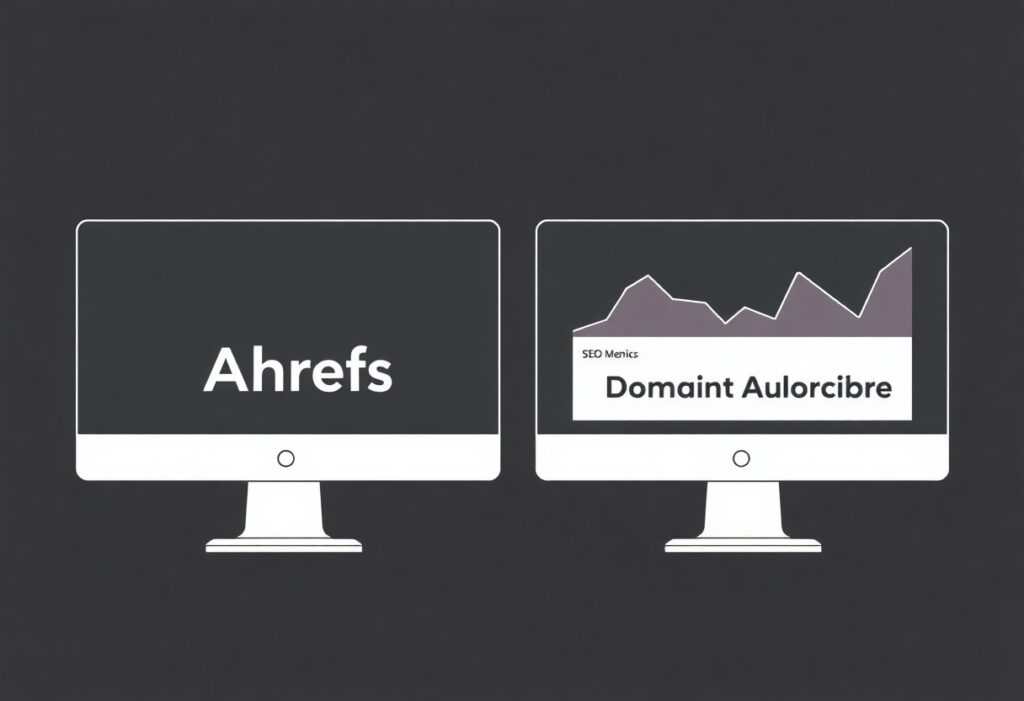Keywords play a vital role in optimizing your website for search engines, and understanding Latent Semantic Indexing (LSI) keywords can give you an edge. You might think packing content with primary keywords is enough, but search engines now focus on context. By incorporating related terms, you enhance your content’s relevance while avoiding keyword stuffing, which can harm rankings. At Rank Authority, we use AI-powered strategies to help you implement LSI keywords effectively. In this guide, you’ll learn how to find, use, and benefit from LSI keywords, ensuring your website ranks higher and attracts the right audience.
Understanding Latent Semantic Indexing (LSI) Keywords
While Latent Semantic Indexing (LSI) keywords are often misunderstood, they play a significant role in improving your content’s relevance for search engines. Search algorithms use LSI to analyze relationships between words, allowing them to understand your content beyond simple keyword matching. This means that by using related terms naturally throughout your content, you can enhance your SEO strength. Effective use of LSI keywords signals to search engines that your content is more comprehensive. Rank Authority helps businesses leverage AI to strategically include these keywords, ensuring better rankings and increased visibility online without stuffing unnecessary terms into your content.
What Are LSI Keywords?
Among the many SEO tactics, LSI keywords stand out as related terms that help search engines grasp the deeper meaning behind your content. Instead of being exact match synonyms, these words and phrases provide important context. For instance, if your main keyword is “search engine optimization,” LSI keywords could include “Google rankings,” “SEO strategy,” or “keyword research.” By incorporating these terms, your content becomes more natural and valuable to readers. Rank Authority’s AI-driven tools assist in identifying the optimal terms, ensuring your content aligns with search intent while improving its effectiveness on search engines.
How LSI Differs from Traditional Keywords
Beside traditional keyword optimization, Latent Semantic Indexing keywords provide search engines with additional context, making your content more authentic and user-friendly. Instead of relying solely on one repeated keyword, LSI keywords offer variations that naturally fit into the text. This approach allows search engines to understand your topic more effectively, leading to improved rankings. Unlike outdated keyword stuffing techniques, which search engines penalize, LSI keywords help maintain a balanced, readable flow. At Rank Authority, we use AI technology to identify and implement related terms intelligently, ensuring your content stays relevant without compromising the reader’s experience.
Plus, LSI keywords enhance your content by incorporating meaningful variations rather than repetitive phrases. Keyword stuffing no longer works because search engines now prioritize semantic relationships over simple repetition. By blending LSI keywords seamlessly, your content not only sounds more natural but also gains better visibility. Additionally, search algorithms analyze user intent, meaning content with semantically related phrases ranks higher. Practicing this strategy prevents penalties while improving audience engagement. Rank Authority uses AI-powered SEO methods to determine the best semantic terms, helping you optimize effectively and stay ahead in the competitive digital landscape.
Importance of Latent Semantic Indexing (LSI) Keywords in SEO
There’s no doubt that Latent Semantic Indexing (LSI) keywords play a significant role in SEO by helping search engines understand the context of your content. By naturally integrating LSI keywords, you can enhance user experience while ensuring higher rankings. Search engines, like Google, aim to provide users with relevant results, and using related terms signals that your content is comprehensive. At Rank Authority, we leverage AI to identify the best LSI keywords, ensuring your content stays competitive. Consequently, using LSI keywords can increase your page’s visibility, bringing more organic traffic and strengthening your position on search results.
Enhancing Content Relevance
Before search engines rank your content, they analyze its relevance based on keyword usage and context. By using Latent Semantic Indexing, you help search engines understand the topic naturally without keyword stuffing. LSI keywords enrich your content, making it easier to read while maintaining topical depth. Readers appreciate informative and well-structured content, leading to increased engagement and lower bounce rates. Rank Authority uses AI-driven tools to identify the most effective LSI keywords, ensuring your content aligns with user intent. Consequently, when your content is more relevant, search engines view it favorably, improving its chances of ranking well.
Improving Search Engine Rankings
Below the surface, search engines rely on Latent Semantic Indexing to determine content quality and keyword relationships. Using related terms helps search engines recognize that your content is well-rounded, increasing the likelihood of higher search rankings. Incorporating LSI keywords naturally throughout your content can prevent over-optimization penalties while improving discoverability. Rank Authority’s AI-driven SEO strategies ensure that LSI keywords are integrated effectively, making your content more attractive to search algorithms. As a result, your pages are more likely to appear in relevant searches, helping you reach a broader audience and outperform competitors in your niche.
Hence, leveraging Latent Semantic Indexing improves your content’s ranking potential while keeping it user-friendly. Google rewards websites that provide valuable insights using varied yet related terms, avoiding repetitiveness. By utilizing well-researched LSI keywords, your content appears more authoritative and contextually significant. Additionally, AI-powered tools from Rank Authority can pinpoint the best LSI terms, streamlining your optimization process. The more relevant and structured your content is, the better your chances of ranking higher in search results. Adopting LSI keyword strategies can ultimately establish your website as a trusted resource, resulting in better search visibility and increased organic traffic.
Finding the Right Latent Semantic Indexing (LSI) Keywords
Some of the best ways to use Latent Semantic Indexing keywords for SEO involve finding terms that Google associates with your primary keyword. These related keywords help search engines understand your content more accurately. Additionally, they enhance your chances of ranking for multiple related terms. By using tools like keyword planners and competitor analysis, you can identify effective LSI keywords. Furthermore, implementing AI-based SEO solutions, such as those offered by Rank Authority, can streamline this process and improve your search rankings. Ultimately, strategically placed LSI keywords contribute to better user engagement and improved visibility.
Free and Paid Keyword Research Tools
At the heart of any successful Latent Semantic Indexing strategy lies the ability to find relevant related keywords efficiently. Free tools, such as Google’s Autocomplete, Related Searches, and People Also Ask sections, offer quick insights. Meanwhile, paid tools like Ahrefs, SEMrush, and Moz provide in-depth keyword analysis, competition data, and search volume trends. Additionally, AI-driven tools from Rank Authority simplify this process by streamlining research and offering AI-generated keyword suggestions. Combining both free and paid tools ensures that you uncover high-impact LSI terms, helping your content rank higher while maintaining readability and relevance.
Analyzing Competitor Content for LSI Terms
Across top-performing competitor sites, you’ll notice recurring themes and keywords that supplement the primary target term. Identifying these related terms strengthens your content and aligns your pages with search engine expectations. By analyzing competitor blogs, product pages, and articles, you can uncover valuable Latent Semantic Indexing keyword variations. Moreover, AI-powered insights from Rank Authority can automate this research, providing you with data-driven recommendations. Ultimately, optimizing your content with competitor-tested LSI terms improves search visibility and strengthens your domain authority within your niche.
Right now, your competitors are already benefiting from well-researched LSI keywords, enhancing their search engine rankings. By carefully reviewing their top-ranking pages, you can extract secondary keywords, synonyms, and contextual terms that contribute to higher relevance. Additionally, consider scanning their meta descriptions, headers, and subheadings for frequently used words. However, avoid directly copying their strategy—Google penalizes duplicate content. Instead, use AI-based tools like those from Rank Authority to automate this process and generate unique yet optimized content. Integrating LSI keywords organically into your material ensures better indexing and more consistent traffic growth.

Using Latent Semantic Indexing (LSI) Keywords Effectively
All successful SEO strategies leverage Latent Semantic Indexing (LSI) keywords to enhance content relevance while boosting search rankings. However, using them effectively requires a careful approach. You should naturally integrate these keywords in your content rather than forcing them in. Additionally, placing them in key areas—such as titles, headings, and meta descriptions—can help search engines understand your content better. Rank Authority recommends maintaining a semantic balance in your keyword usage to avoid stuffing, which can harm your SEO. By correctly applying LSI keywords, you improve user experience while making your site more attractive to search engines.
Natural Integration in Content
On-page SEO benefits significantly when you integrate Latent Semantic Indexing keywords naturally within your content. Instead of stuffing them into every paragraph, use them in a way that enhances readability and supports the main topic. A conversational and informative tone makes the writing flow smoothly while ensuring relevance. Synonyms, related phrases, and contextually appropriate words help reinforce your message without overloading your text. Rank Authority suggests paying attention to how your content reads, ensuring it stays engaging and avoids robotic phrasing. A well-optimized article creates a better experience for both readers and search engines.
Placement in Titles, Headings, and Meta Descriptions
Beside using LSI keywords within your main body text, incorporating them in strategic areas—such as titles, headings, and meta descriptions—enhances SEO impact. These placements allow search engines to recognize the topic relevance of your content while increasing visibility for users. Rank Authority emphasizes proper structuring, ensuring each section aligns contextually with Latent Semantic Indexing keywords. Placing them naturally in H1 and H2 headings makes the content scannable and inviting for readers. Additionally, meta descriptions with semantically related keywords often attract better click-through rates, as they align closely with user search intent.
Meta descriptions, for example, rely on Latent Semantic Indexing keywords to entice potential visitors while providing search engines with clear context. An effective meta description should integrate related terms while remaining concise and informative. Similarly, optimized titles incorporating relevant phrases can improve search rankings and engagement. Headings, especially H2 and H3 tags, benefit from including semantically related keywords, making the content more structured and readable. Rank Authority recommends a balanced approach, ensuring keywords appear naturally rather than forcing them in. This method boosts SEO while maintaining credibility with both users and search engines.

Common Mistakes to Avoid – Latent Semantic Indexing (LSI)
Now, using Latent Semantic Indexing (LSI) keywords can enhance your SEO strategy, but applying them incorrectly can harm your rankings. Many marketers either misuse LSI keywords or depend on them too much, leading to ineffective content. To achieve the best results, you must use a balanced approach. Overstuffing, improper context, or ignoring user intent can negatively impact your visibility. At Rank Authority, we emphasize smart keyword placement instead of outdated techniques. By understanding these common pitfalls and making informed adjustments, your content remains optimized while maintaining readability and value for users.
Overstuffing and Keyword Dilution
Avoid using Latent Semantic Indexing keywords excessively, as this can hurt rather than help your rankings. Google’s algorithm prioritizes natural readability, and an overuse of keywords can make your content appear unnatural. Keyword stuffing signals spam, while keyword dilution happens when too many variations weaken your main focus. Instead, integrate LSI keywords naturally within your text while keeping the content informative and engaging. Rank Authority recommends monitoring keyword density to ensure a balanced approach that enhances SEO while maintaining content quality.
Relying Solely on LSI Without Context
Keyword placement matters, but relying only on Latent Semantic Indexing without context leads to poor results. Search engines assess relevance based on overall content structure, user intent, and readability. If your page lacks a natural flow, it won’t perform well, even with relevant LSI keywords. Instead of simply inserting related terms, use them in a meaningful way that aligns with search intent. Rank Authority’s AI-driven approach ensures that every keyword serves a purpose, optimizing search rankings while keeping your content engaging.
Another mistake is assuming that Latent Semantic Indexing alone is enough to rank high. While LSI keywords enhance content relevance, search engines also evaluate backlinks, page speed, and mobile compatibility. Ignoring these factors may weaken your overall SEO strategy, limiting your chances of success. Your content must be structured logically, with supporting headings and easy readability. A well-rounded SEO approach, incorporating LSI alongside other best practices, creates the strongest foundation for visibility. That’s why Rank Authority prioritizes AI-driven insights to refine keyword usage without sacrificing quality.

Measuring the Impact of Latent Semantic Indexing (LSI) in SEO
To optimize your SEO strategy effectively, you must assess the performance of Latent Semantic Indexing (LSI) keywords in your content. Tracking your website’s rankings, organic traffic, and user engagement will help you understand whether LSI keywords enhance relevance. Additionally, analyzing conversion rates and bounce rates will indicate how well your content aligns with search intent. Rank Authority uses AI-driven insights to provide data-backed strategies, making it easier for you to refine your keyword approach. By carefully evaluating performance metrics, you can ensure that your use of LSI keywords drives higher visibility and better search engine rankings.
Tracking Rankings and Organic Traffic
Organic search rankings and traffic are strong indicators of how well Latent Semantic Indexing keywords work in your SEO strategy. Utilize tools like Google Search Console and Google Analytics to monitor keyword performance and traffic trends. A steady increase in impressions, click-through rates, and page positioning suggests that your LSI keywords are improving visibility. However, if you notice stagnant or declining results, it may be time to refine keyword placement and content structure. Rank Authority’s AI-powered solutions help automate these tracking processes, offering actionable insights that allow you to make data-driven SEO improvements for sustained success.
Adjusting Strategy Based on Performance
Along with tracking rankings, you should continuously refine your Latent Semantic Indexing keyword strategy based on performance insights. If specific content fails to gain traction, revising keyword placement or refining topic relevance can enhance effectiveness. Furthermore, adjusting meta descriptions, headings, and internal links based on user behavior can provide additional SEO benefits. Regular audits help identify gaps, while AI-powered tools like those from Rank Authority streamline the optimization process. By staying adaptable and making data-driven decisions, you ensure that your content remains competitive in an ever-evolving search landscape.
Strategy refinement plays a significant role in maximizing Latent Semantic Indexing keywords’ impact on SEO. By analyzing user engagement metrics, such as dwell time and bounce rate, you can pinpoint whether your content needs better structuring or more relevant terms. If users quickly exit your pages, incorporating more accurately aligned related keywords can improve context and keep them engaged. Additionally, A/B testing different variations of LSI keyword placement can reveal what resonates best with your audience. With Rank Authority’s AI-powered technology, you can automate these optimizations, ensuring your website remains relevant, authoritative, and highly ranked in search results.
Final Words
Hence, using Latent Semantic Indexing (LSI) keywords strategically enhances your SEO efforts by improving content relevance and search engine rankings. By integrating related terms naturally, you help search engines understand your content better, which, in turn, boosts visibility. Additionally, LSI keywords improve user experience by providing well-structured, informative content that aligns with search intent. At Rank Authority, we leverage AI-driven strategies to help businesses like yours optimize content effectively. So, by applying these techniques, you increase your chances of ranking higher while maintaining readability. Ultimately, mastering LSI keywords ensures a competitive edge in search engine results, leading to long-term SEO success.

Sign Up for Free!
One-Click Fully Automated SEO.
Boost Rankings, and Increase Traffic.
Instantly Optimize Your Site.
- No Coding
- No Credit Card Required
- One Click Setup













